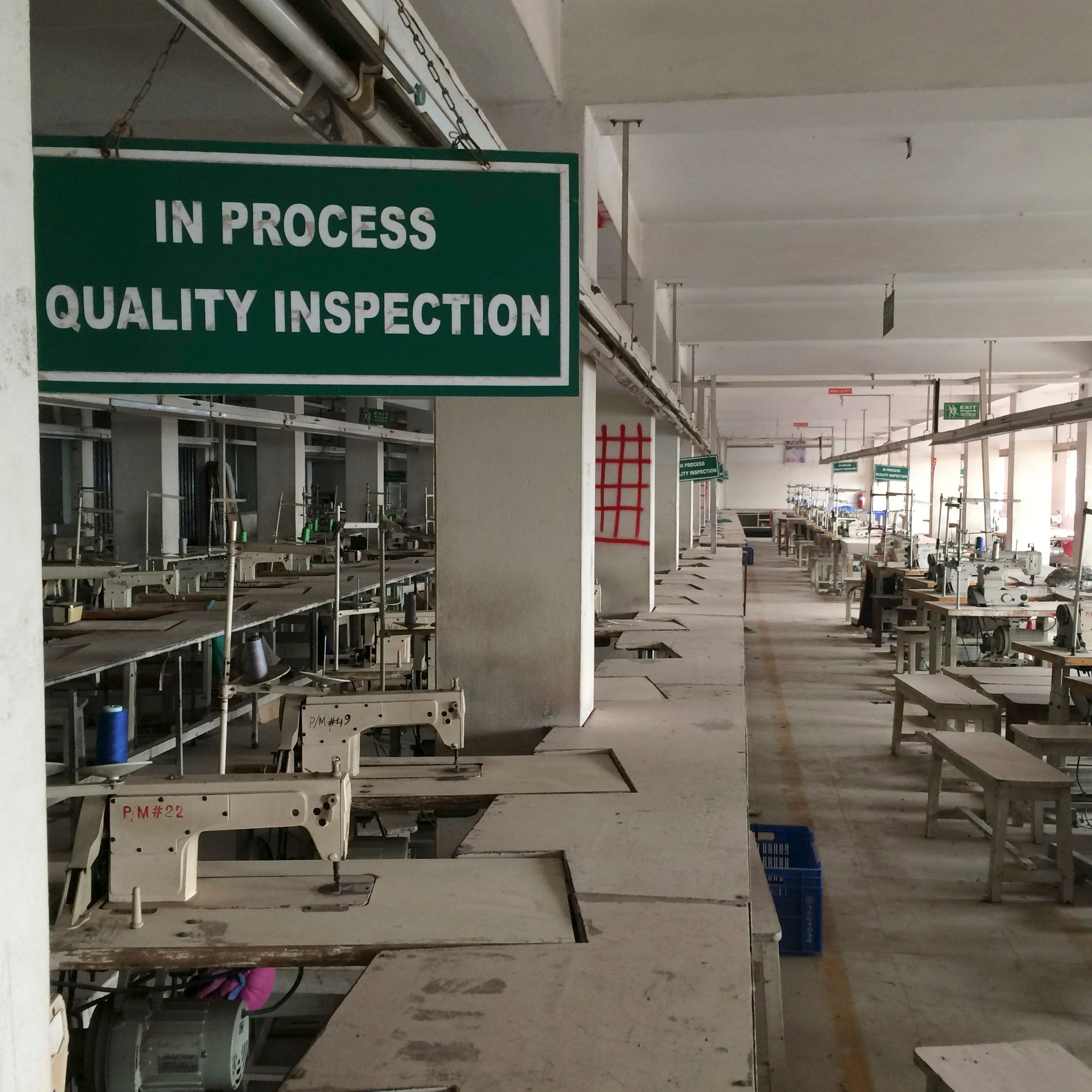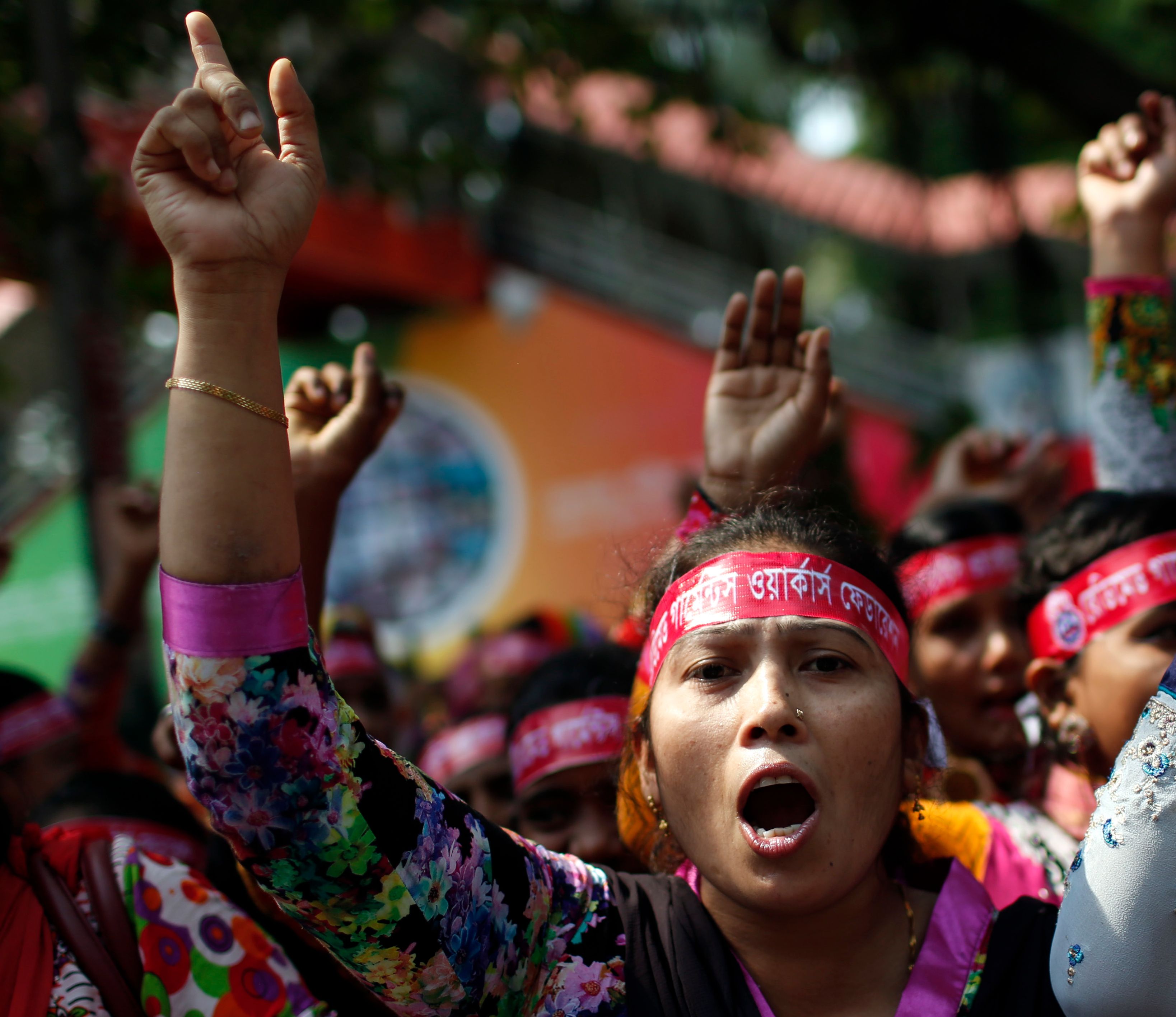Violations of Labour Rights
 ©
Krista Mahr / Reuters
©
Krista Mahr / Reuters
Building security
Workplace safety and health are not a given: this was made clear by the tragic collapse of the Rana Plaza in Bangladesh in 2013. Almost 2,200 people lost their lives in clothing factories between 1990 and 2013 in Bangladesh alone. The number of those injured stands at around 5000. The Clean Clothes Campaign, together with the international trades unions IndustriALL and UNI, jointly proposed a framework agreement on building safety and fire prevention standards. This agreement was signed by a significant number of companies, including H&M and C&A. This development was clearly the result of civil society pressure.
 ©
Justin Jin / Panos
©
Justin Jin / Panos
Sandblasting
The sandblasting technique involves giving new jeans a worn or vintage look. In Turkey, at least 1200 workers involved in this process suffer from silicosis, an incurable lung disease. It has been estimated that between 5000 and 10,000 people are affected by this disease. The death toll stood at 52 in early 2013. As sandblasting has been banned in Turkey, production has been delocalised, mainly to Bangladesh and China, where the workers are now facing the same risks. The CCC demands that sandblasting be banned at global level. Over 40 big brands committed to banning sandblasting in a campaign that was launched in November 2009. But to date this has not been implemented.
 ©
AM, Ahad / AP, Keystone
©
AM, Ahad / AP, Keystone
Union activities
It is common practice to lay off unionised workers, or even to shut down factories that have become unionised to try to muzzle trade unions or to stop related activities from taking root. Methods such as these are contrary to fundamental ILO norms, as well as the OECD Guiding Principles concerning multinational companies. The Swiss underwear company Triumph International laid off some 3660 workers in Thailand and the Philippines in 2009 – there were well-organised unions in both companies. The CCC supported these unions between 2009 and 2012 in their fight for greater justice. During the Covid-19 pandemic in particular, governments have restricted trade union rights more frequently and we have seen members of trade unions targeted for redundancies.
 ©
Greenpeace
©
Greenpeace
Child labour and forced labour
Child labour and forced labour are regulated under the fundamental ILO norms and banned at global level, but the fashion industry continues to defy them. SOMO, a partner organisation of the CCC, discovered that young girls were being used for forced labour in garment factories in India in 2011. The CCC publicised the practice and demanded that Swiss companies assume their legal responsibilities.
The Clean Clothes Campaign (CCC)
In many cases of human rights and labour law violations, if and when pressure is brought to bear on companies and governments, steps are taken to improve the situation. The Clean Clothes Campaign (CCC) works jointly with many different partner organisations in the countries where the clothes are made, and in the factories to inform workers on labour and human rights. In the case of urgent calls and campaigns, the CCC intervenes and takes positions to help the workers in clothing companies defend their rights.

